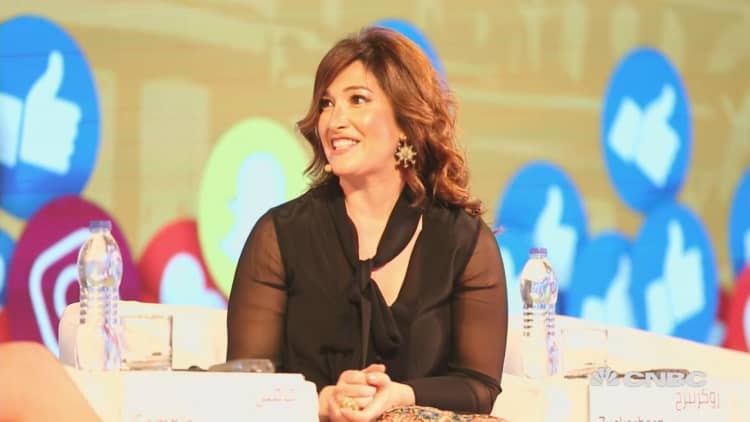Feminism and gender equality have been thrust into the limelight in the past year following the rise of the #MeToo and Time's Up movements.
The drive for equality, of course, has been ongoing for decades.
Women in Britain took to the streets in the early 1900s to fight for their right to vote in political proceedings. Known as suffragettes, it wasn't until 1928 that their efforts saw women over 21 years win the right to vote.
For Helen Pankhurst, the great-granddaughter of leading British suffragette Emmeline Pankhurst, the term "feminist" has its own connection with the suffragette movement, as does the word "suffragette" itself.
Speaking at the AllBright's FoundHER Festival in London in July, Pankhurst, a women's rights campaigner and writer, explained how the term suffragette had been coined by British newspaper the Daily Mail as "a way of making fun of us," before the female campaigners realized that they liked the expression and decided to adopt it.
"And I think the same goes on with the term feminist," she added. "It is used as a way to pigeonhole and describe it negatively. And I think what we should do is not allow it to be used in that way, and to own it and to be proud of it, and to show it in lots of different ways."
During a session titled "Helen Pankhurst: Deeds Not Words," Pankhurst suggested that there were lots of different ways to convey feminism in society.
For instance, "you could be a feminist because you are a sportsperson, who's passionate about sports equality — and you might not be interested in political equality, but actually in the sporting field, that's the one that you care about."
Like the contention surrounding the word suffragette a century ago, an attempt to portray feminists and feminism negatively is what needs to be combatted today, Pankhurst said.
Typically, feminism is defined by many as supporting women's rights on the grounds of equality between the genders, meaning that women should receive the same opportunities, rights, authority and treatment as men.
So if a person supports this belief, then he or she too is a feminist, Pankhurst explained.
"The first thing you can do is call yourself a feminist, because if you don't even have the courage to do that, then you're already shying away from speaking up against inequality."
People worldwide have stepped up and called themselves a feminist, from activists on the streets to famous personalities such as Nobel Prize Laureate Malala Yousafzai, Canadian Prime Minister Justin Trudeau and actors Emma Watson and Justin Baldoni.
And a greater understanding of what it means to be a feminist in today's society is on the rise, but issues still remain.
For instance, the Fawcett Society published its Sex Equality: State of the Nation report in January 2016, which states that 67 percent of the 8,000-plus U.K. citizens surveyed were sympathetic to feminism, with even more wanting equality for all sexes; however, only 7 percent considered themselves a feminist.
Yet a change of thought can take shape — take Yousafzai, for example. At the World Economic Forum in Switzerland in January, the activist told a crowd that when she first heard the term feminism, she thought it was a tricky phrase due to messages she'd seen that suggested it was about female superiority rather than equality.
"I just looked more into it and I realized that feminism is just another word for equality — it means equality and no-one would object equality, no one should object equality and it just means that women should have equal rights as men," Yousafzai said.
It's this initial step of embracing the word feminist that is "really important," Pankhurst said. "So for me, it's a really important first step about saying, 'I believe that there is gender [inequality] and there is still something we need to do, that we need to address."
Like this story? Like CNBC Make It on Facebook
Don't miss:
3 entrepreneurs reveal what they learned after setting up their businesses
Gina Miller: How standing up for what you believe in can become second nature
Kate Hudson urges action 'now' and calls for legal steps to follow the Time's Up movement
Why Sophie Gregoire Trudeau wants young people to stay socially conscious and engage in politics



